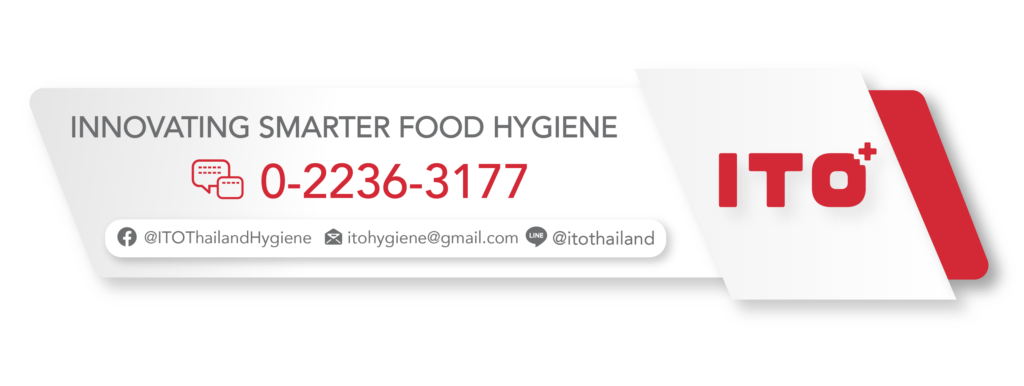ITO Thailand Hygiene Blog
Cannabis
Legalization of cannabis in Thailand
Both CBD (Cannabidiol) and THC (Delta-9-Tetrahydrocannabinol) compounds are extracted from cannabis plants. For medical treatment, they are known for their medical benefits as they can treat pain, nausea, cancer, Alzheimer’s disease, etc. (Fletcher, 2019). Medical cannabis tends to have lower THC content and is dominated by CBD. According to the research by Iffland and Grotenhermen (2017), CBD does not have significant side effects even with high doses (Silva, 2022), and users will not get ‘high’, however, there is a risk of interaction with other drugs and the usage must be under medical advice.
Basically, both cannabis and hemp are in the same species, Cannabis sativa. The main difference between them is their THC content. Hemp has a THC content at 0.3% or lower, which means it is unexpected to get a user high (Malone, 2021). However, cannabis contains a higher content of both THB and CBD than hemp, so it is a hallucinogenic substance and are heavily restricted in many countries. In Thailand, both cannabis and hemp must contain less than 0.2% THC for usage in food and beverages (Mao, 2022).
Drawbacks of cannabis legalization
Overdose consuming is one of the most concerning issues after it has been decriminalised. Thai PBS (2022) has reported 4 people in Bangkok, who have been hospitalised and one has died of a heart failure. Though it is not confirmed yet, the cause of death is believed to be an overdosing consumption. Bangkok Governor Chadchart Sittipunt has admitted his concern and declared schools and restaurants in school areas to be cannabis-free zone to protect students from getting involved with cannabis because children are very responsive to stimuli, and even a small quantity of cannabis could increase a risk of addiction.
Another issue is the measurement of THC content in recreational use. For example, restaurants have added marijuana products into their menus, and it is challenging for the authorities to regulate how much THC is included. Practically, it is very unlikely to measure whether those dishes contain less than 0.2% THC or not (Mao, 2022). The police have expressed their concerns as the laws controlling cannabis are confusing and they are not sure which laws to be enforced. The new policy is confusing, and many people, even the officials, don’t understand what they can or cannot do because it is not straightforward.
Opportunities in cannabis industry
We can see that the decriminalisation of cannabis has opened the opportunities for businesses in several industries (Preechabhan et al., 2021) such as
•Cosmetics industry: Hemp seed oil is rich in high essential fatty acid content which is an important component in cosmetics, and personal care products (Preechabhan et al., 2021).
•Healthcare industry and medical tourism: During the COVID-19 pandemic, it is estimated that Thailand has lost 100 billion Baht in the first quarter of 2020 (Schedneck, 2021). Thailand is well-known as top destination for medical tourism because Thai healthcare system is advanced and affordable which attracts medical tourists (Finch, 2014), so after the reopening of the border, Thailand is expected to be their destination again. CBD compound in cannabis can treat depression, inflammation, migraines, etc. while THC can treat muscle spasticity, low appetite, insomnia, etc. (Fletcher, 2019).
•Food industry: In 2022, food companies in Thailand have launched cannabis product such as Doidham’s Hemp Double Shot, drink containing ginger juice, finger root juice, lemon, Thai sweet fermented rice, hemp, and lime juice. Thai Ha Innovative Foods Co., Ltd., the manufacturer of this product, also launched Kratom Double Shot, after the decriminalisation of kratom in 2021 (Hong, 2022). Another product is launched by Yanhee. ‘Yanhee Cannabis Water with Vitamin B12’, cannabis-infused water made from extracted cannabis leaves claimed to be mood-enhancing water and is available at 7-11 nationwide (Osotspa, 2022). Most of innovative food and beverage products, such as cannabis products, were presented at the ThaiFEX exhibition.
We can see that trends are evolving. A few years ago, Thailand declared war on narcotics, which cannabis is also included, and today it is recognised by law in the country. It is important to understand current trends as well as to prepare and expect for future trends, which applied for the food industry as well. Developing innovative food products can help you reach new customers and be a part of this challenging industry. ITO Thailand can help your business grow with hygiene solutions such as dust cleaner, high-speed shutter door, packing robot, and automation products as well as consultation services.
References
Finch, S. (2014, January 7). Thailand top destination for medical tourists. CMAJ. https://www.cmaj.ca/content/186/1/E1
Fletcher, J. (2019, July 26). A comparison of CBD and THC. Medical News Today. https://www.medicalnewstoday.com/articles/325871
Hong, T. H. (2022, May 25). Thai Ha showcases Hemp Double Shot and Kratom Double Shot at Thaifex 2022. Mini Me Insights. https://www.minimeinsights.com/2022/05/25/thai-ha-showcases-hemp-double-shot-and-kratom-double-shot-at-thaifex-2022
Iffland, K., & Grotenhermen, F. (2017). An Update on Safety and Side Effects of Cannabidiol: A Review of Clinical Data and Relevant Animal Studies. Cannabis and Cannabinoid Research, 2(1), 139–154. https://doi.org/10.1089/can.2016.0034
Malone, T. (2021, April 6). CBD, marijuana and hemp: What is the difference among these cannabis products, and which are legal? Michigan State University. https://msutoday.msu.edu/news/2021/cbd-marijuana-and-hemp
Mao, F. (2022, June 14). Thailand legalises cannabis trade but discourages personal use. BBC News. https://www.bbc.com/news/world-asia-61741422
Osotspa. (2022, April 26). “Osotspa” and “Yanhee” launch their first product, “Yanhee Cannabis Water,” Introducing a differentiated mood-enhancing water made from cannabis leaves with Vitamin B12, and no added sugar. https://www.osotspa.com/new/en/news/detail.650.1.0.html
Preechabhan, P., Tungsuwan, P., Chantanakomes, P., & Uditananda, P. (2021, April 9). Thailand Continues to Carve Out Certain Cannabis and Hemp Plants from Regulation; What This Means for the Future of Cannabis in the Country. Global Cannabis Compliance Blog. https://globalcannabiscompliance.bakermckenzie.com/2021/04/09/thailand-continues-to-carve-out-certain-cannabis-and-hemp-plants-from-regulation-what-this-means-for-the-future-of-cannabis-in-the-country
Schedneck, B. (2021, June 3). The pandemic has slowed tourism to Thailand’s Buddhist temples, but the impact is more than economic. The Conversation. https://theconversation.com/the-pandemic-has-slowed-tourism-to-thailands-buddhist-temples-but-the-impact-is-more-than-economic-160673
Silva, L. (2022, June 7). CBD vs. THC: What’s The Difference? Forbes Health. https://www.forbes.com/health/body/cbd-vs-thc
Thai PBS. (2022, June 14). Four admitted to hospital, one dies after using cannabis following decriminalisation. Thai PBS World. https://www.thaipbsworld.com/four-admitted-to-hospital-one-dies-after-using-cannabis-following-decriminalisation
Related Post
-
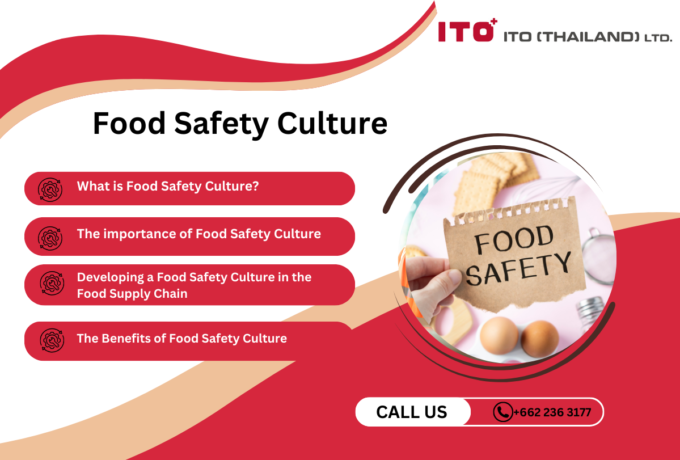
Food Safety Culture
Food safety culture plays a crucial role in safeguarding the company's reputation, ensuring the well-being of its employees, and providing a safe experience for its customers.
-
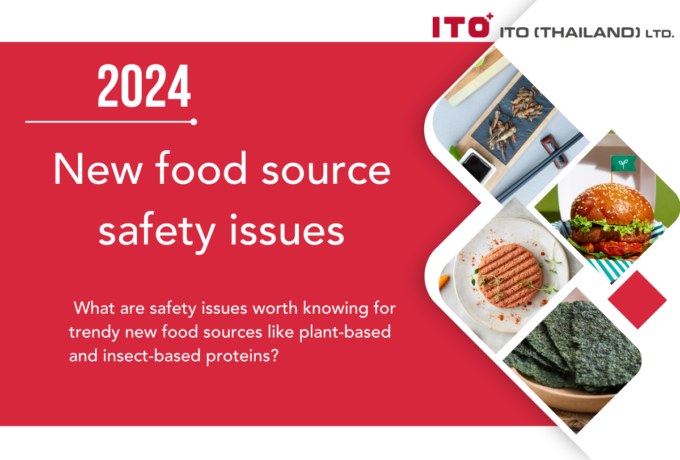
New food source safety issues
What are safety issues worth knowing for trendy new food sources like plant-based and insect-based proteins?
-
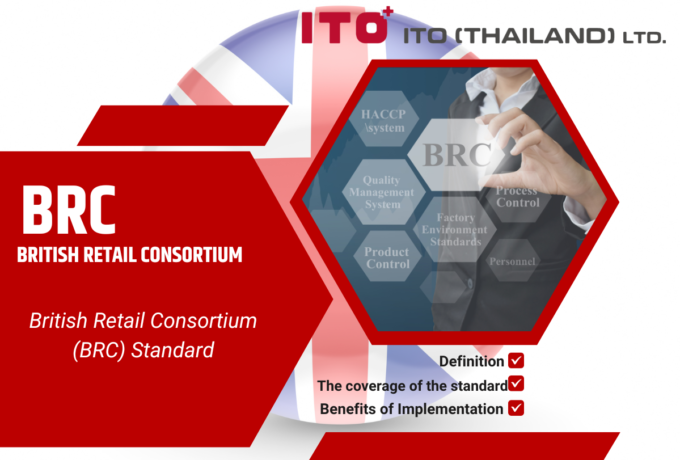
British Retail Consortium (BRC) Standard
Food safety management systems play a vital role in ensuring the production and distribution of safe and high-quality food products to consumers. With the global food supply chain becoming increasingly complex, food businesses must implement effective systems prioritising safety, quality, and compliance with industry standards. A food safety management system encompasses a set of procedures, processes, and controls designed to identify, prevent, and manage potential hazards at every stage of the food production and supply process. This proactive approach not only safeguards consumers' health but also protects the reputation and credibility of food companies in an ever more competitive market.
-
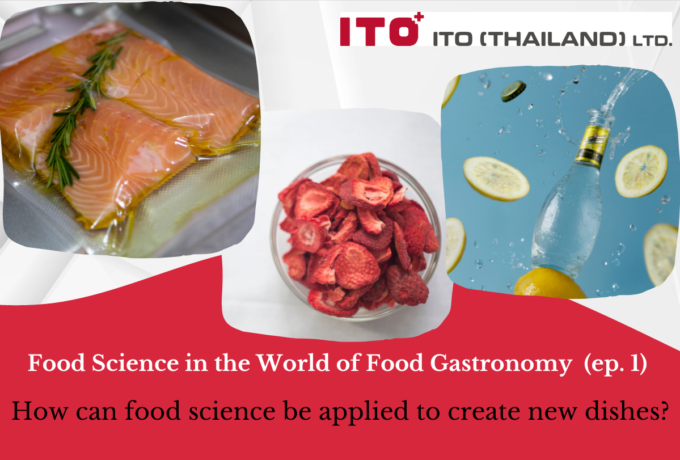
Food Science in the World of Food Gastronomy (Part 1)
How can food science be applied to create new dishes?
-
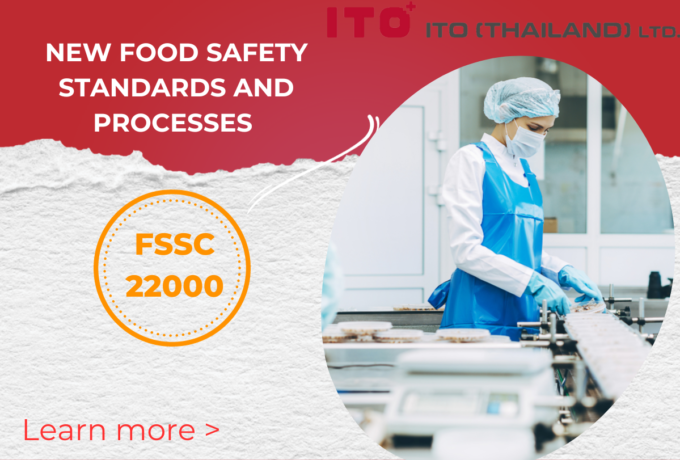
FSSC 22000
Food manufacturers must ensure food safety standards and processes. FSSC 22000 is an official certification program for Food Safety Management Systems (FSMS) recognised by the Global Food Safety Initiative (GFSI). This certification scheme offers a set of guidelines and procedures to ensure uniformity, openness, and safety across your entire supply chain. It applies to all companies operating within the food and beverage industry, ranging from farmers to retailers. By fulfilling the necessary criteria and obtaining FSSC 22000 certification, it is demonstrated that the required standards for food quality and implementing effective processes to manage and mitigate risks associated with food fraud, foodborne illnesses, expensive recalls, and other external threats are met.
-

Food Safety Aspects of Artificial Sweeteners
Artificial sweeteners, also known as sugar substitutes, non-nutritive sweeteners, or high-intensity sweeteners, are artificially produced compounds utilised in place of sucrose (table sugar) to add sweetness to food and drinks. Due to their significantly higher sweetness than regular sugar, only a fraction of artificial sweeteners (200 to 20,000 times less) is required to achieve an equivalent level of sweetness. Since the caloric contribution of these sweeteners, when used in such small quantities, is insignificant, they are often referred to as non-nutritive (4).









